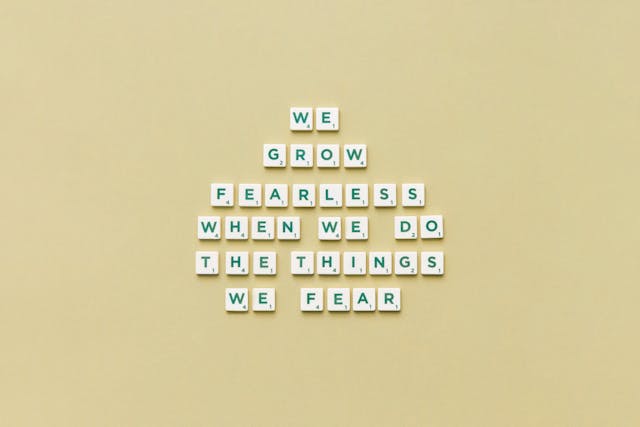12 Signs You Might Have Narcissistic Victim Syndrome

Being in a relationship with a narcissist doesn’t always feel toxic at first. In fact, it can feel like love—intense, consuming, flattering. They mirror your dreams, validate your insecurities, and pull you in with charm and attention. But slowly, things shift. The compliments turn into criticism. Your voice gets quieter. Your confidence starts to fade. And before you know it, you’re questioning your own reality.
That’s the silent cruelty of narcissistic abuse—it creeps in without warning and leaves scars that aren’t always visible. Over time, many survivors of narcissistic relationships develop something called Narcissistic Victim Syndrome—a term used to describe the emotional and psychological aftermath of enduring prolonged manipulation and gaslighting by a narcissist.
This isn’t about labeling yourself a victim forever. It’s about understanding what you’ve been through, so you can begin to heal. If you’ve ever felt like you lost yourself trying to love someone else, these signs might resonate more than you expect.
Here are 12 signs you might have Narcissistic Victim Syndrome—and why recognizing them is the first step to reclaiming your power.
1. You Constantly Second-Guess Yourself
Every decision—big or small—feels like a minefield. Should you speak up? Was that message too harsh? Are you overreacting?
After prolonged gaslighting, you begin to doubt your own thoughts, feelings, and instincts. You no longer trust yourself to “read” a situation accurately, so you second-guess everything.
This isn’t because you’re indecisive—it’s because someone conditioned you to believe your judgment can’t be trusted.
2. You Apologize… Even When You’ve Done Nothing Wrong

You say “sorry” for things that don’t require an apology. You apologize for your tone, your timing, your needs, or even just your existence.
Why? Because in a narcissistic relationship, you were probably made to feel like everything was your fault. The narcissist rarely took accountability—so you took on the blame to keep the peace.
Over time, this becomes a reflex, even after they’re gone.
Don’t Miss: 10 Things A Man Only Does in Bed When He Really Loves You
3. You Struggle to Identify What You Want
When you’ve spent so long catering to someone else’s emotions, wants, and needs, you eventually lose touch with your own.
What makes you happy? What do you enjoy? What kind of relationship do you want? These questions might feel harder than they should—because your identity was swallowed by someone else’s demands.
Reconnecting with your desires is part of healing—but at first, it can feel foreign.
4. You Feel Guilty for Setting Boundaries
Saying “no” feels like a crime. Asking for space makes you feel selfish. Declining an invite brings on a wave of shame.
That’s not you being unreasonable—it’s a trauma response. Narcissists often punish or guilt-trip you for asserting your needs. So even after the relationship ends, boundaries feel like dangerous territory.
But healthy people respect boundaries. And you’re allowed to have them.
5. You’re Always Walking on Eggshells
You may feel a constant low-level anxiety in relationships. You’re hyper-aware of other people’s moods, carefully choosing your words to avoid triggering conflict.
This is classic emotional conditioning. If you were punished or shut down every time you showed emotion or disagreement, your nervous system learned to stay small, silent, and careful.
It’s not overreacting—it’s survival mode.
Don’t Miss: 10 Cheat Codes For Life That No One Tells You
6. You Blame Yourself for How Others Treat You

You assume that if someone’s mad, distant, or cold—it must be your fault. You analyze your tone, replay conversations, and wonder how you could’ve “done better.”
But this mindset isn’t about guilt—it’s about control. In a narcissistic relationship, you were trained to believe that you were the problem. That if you just loved harder or behaved better, they’d finally treat you right.
That’s a lie you need to unlearn.
7. You Struggle with Self-Worth and Validation
Even if you’re successful, kind, and deeply loved by others—you might still feel like you’re not enough. Like you’re too much and not enough all at once.
Narcissists tear down your confidence subtly and consistently. They make you question your worth, so you’ll depend on them for validation. Over time, you lose the ability to feel confident on your own.
Rebuilding that self-worth is hard—but it is possible.
8. You Feel Confused About What’s “Normal” in Relationships
You might find yourself asking: Is it normal to feel scared after texting someone? Is it normal to be anxious when your partner’s quiet? Is it normal to dread asking for help?
The answer: no. But after narcissistic abuse, your baseline for “normal” is distorted. You may associate love with fear, silence with punishment, and affection with manipulation.
Healing means rewriting those definitions—and learning that love doesn’t feel like fear.
Don’t Miss: 10 Sentences I Wish I Read In Life Earlier
9. You Feel Emotionally Numb or Detached

You don’t cry like you used to. You don’t laugh like you used to. You find yourself zoning out during conversations or feeling disconnected even around people you love.
This numbness isn’t a sign that something’s wrong with you. It’s a protective mechanism your brain developed to cope with emotional chaos. When you’re constantly on edge—walking on eggshells or bracing for the next outburst—your nervous system can shift into emotional shutdown.
This is especially common after narcissistic abuse, where your feelings were often dismissed or used against you. Your mind learned that expressing emotions could lead to punishment, so it built a wall.
Healing starts with feeling safe again—physically and emotionally. As you slowly reconnect with your sense of security, the numbness will start to thaw. Don’t rush it. Give yourself grace.
10. You Keep Attracting Emotionally Unavailable People
You might notice a painful pattern: you’re drawn to people who can’t meet you emotionally. They’re hot and cold, inconsistent, or completely avoidant. And yet, something about them feels… familiar.
This isn’t coincidence—it’s trauma trying to recreate what it knows. Narcissistic abuse often wires your nervous system to seek out similar dynamics, not because they’re healthy, but because they’re predictable.
Your inner child might believe love equals proving yourself, chasing affection, or earning someone’s attention. So, when someone actually shows up for you, it can feel “too easy” or even boring.
Breaking this cycle starts with reprogramming your idea of love. Healthy love doesn’t confuse or manipulate—it nurtures and respects. The more you heal, the more you’ll crave peace instead of chaos.
You May Like: 10 Signs You’re Doing Well In Life
11. You Struggle with Trust—even When It’s Safe
Even when someone treats you well, part of you stays guarded. You wonder: What if they’re pretending? What if they turn out to be like the last one? What if I let my guard down and get hurt again?
This fear isn’t irrational—it’s a residue of the emotional betrayal you endured. Narcissists often start with extreme affection, only to weaponize your vulnerability later. That kind of trauma doesn’t just vanish.
Now, even kindness can feel suspicious. You might push people away or self-sabotage, not because you want to—but because your brain is trying to protect you.
Healing doesn’t mean you’ll suddenly trust everyone. It means learning to trust yourself again—your gut, your boundaries, your ability to walk away if needed.
12. You Feel Like You Lost Pieces of Yourself
You used to know who you were. What you liked. What you stood for. But after narcissistic abuse, you may feel like a ghost of your former self. Certain hobbies faded. Confidence disappeared. Even your laughter sounds different.
Narcissists have a way of slowly erasing their partner’s identity. They criticize your passions, belittle your emotions, and center everything around themselves until you forget what life was like before them.
But here’s the good news: you can reclaim every piece.
It starts with small steps—listening to music you used to love, reaching out to friends who made you feel alive, revisiting your old journals, taking yourself on dates. Bit by bit, you’ll remember her—the version of you who existed before the manipulation. And she’s still there, waiting.
Don’t Miss: 10 Psychology Tricks That Are Used By High IQ People
Final Thought
Narcissistic Victim Syndrome is not a label for life. It’s not your identity—it’s a reflection of the pain you endured and the strength it took to survive it. If these signs hit close to home, it doesn’t mean you’re broken. It means you’ve been deeply impacted—and now, you’re becoming aware of it.
And that awareness? That’s power.
You’re not overreacting. You’re not too sensitive. You’re not hard to love.
You were just manipulated by someone who wanted to control you, not love you.
But you get to take your power back. Slowly, gently, and fully.
Healing takes time. But you are not alone. And you are not what happened to you. You are what you choose to become after it.
FAQs: Signs You Might Have Narcissistic Victim Syndrome
- What exactly is Narcissistic Victim Syndrome?
Narcissistic Victim Syndrome is a non-clinical term used to describe the psychological and emotional aftermath of prolonged narcissistic abuse. It includes symptoms like self-doubt, emotional numbness, chronic guilt, anxiety, and low self-worth, all resulting from manipulation and gaslighting by a narcissist. - How is this different from PTSD or complex trauma?
While there’s overlap, Narcissistic Victim Syndrome is often rooted in emotional abuse rather than one specific traumatic event. It reflects the gradual erosion of self-esteem and identity, often without visible signs of trauma, making it harder to recognize. It may fall under the umbrella of complex PTSD (C-PTSD). - Can Narcissistic Victim Syndrome happen in non-romantic relationships?
Yes. It can happen with narcissistic parents, siblings, bosses, friends, or even spiritual leaders. Any prolonged exposure to narcissistic manipulation can lead to this kind of psychological impact. - Do I need therapy to recover from this?
While not required, therapy—especially with someone experienced in narcissistic abuse recovery—can be incredibly helpful. It gives you tools to rebuild your identity, heal trauma responses, and learn healthy boundaries. Support groups and trauma-informed coaches can also be valuable. - How long does it take to heal?
Healing is not linear and has no set timeline. Some people begin to feel stronger within months; others take years. The important thing is to move at your own pace, celebrate small wins, and be kind to yourself through the process.






